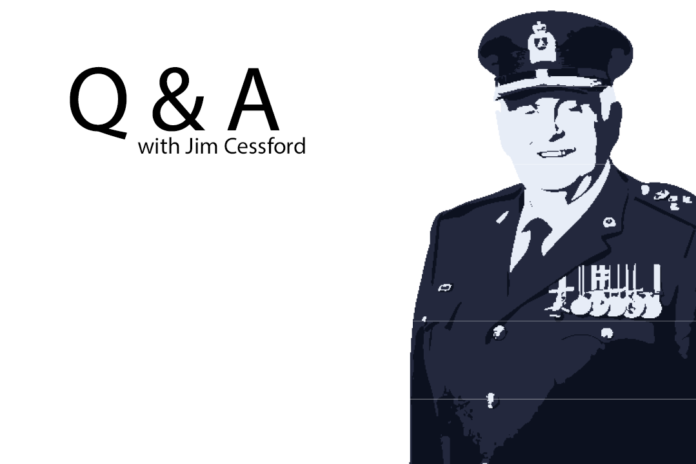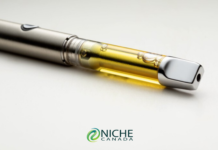When he retired back in 2015, Jim Cessford had been the chief of police for the Delta Police Department for two decades, with a career spanning 47 years. So when it comes to the law, this guy knows what he’s talking about. We sat down with Cessford to talk cops, weed and public safety.
First of all, are you pro-legalization?
Well, I support decriminalization. We are long past making simple possession a criminal offence. The federal government has made the decision to legalize cannabis and they’ve garnered a lot of support for it, so we—the police force—have to be ready for that.
In what way?
Well, from my perspective, instead of resisting change we have to realize it’s come upon us. It’s happening in the U.S., and now it’s happening here, and we need to work with that rather than against it. I can work with the legalization; there are just some things that have to happen from a public-safety perspective. There’s definitely a lot to be done before July 1.
What does legalization have to do with public safety?
There are certainly some main areas we need to focus on. We need to know what the enforcement and pricing scheme would look like in order to [try to] eliminate the black market. What would the law look like? What is the pricing going to be? If they don’t come up with a proper pricing scheme and look at taxation then we won’t eliminate the black market.
Why not?
Because there’s always a market for cheap drugs. And if illegal drugs are cheaper than legal drugs, well . . . that’s that. Legalization won’t eradicate the black market, but it might take some of those sales away.
What does legal consumption look like to you?
That’s what everyone’s talking about right now. Is the legal age of consumption a provincial decision or a federal decision? Should it be 19 or should it be 25? I think the government has to come to terms with the fact that this is happening and get out there to have a public consultation.
What else needs to be done?
From a policing perspective, the technology still doesn’t exist for roadside screening. We need a functioning breathalyzer so that law enforcement can detect drugs in the driver’s system for roadside testing; that’s really, really important.
Do you think there would be an increase in impaired driving?
Yes. Numbers in the U.S. indicated that fatal motor accidents increased quite a bit after the legalization of marijuana. We absolutely have to
be able to detect usage and keep these people
off of the road.
If that technology doesn’t exist yet, what can be done in the meantime?
We should be training law enforcement in drug recognition. There are experts in that field that conduct an extensive training course so that police officers are able to recognize what a person high on drugs looks like, and what their actions are like. The problem with that is that right now we don’t have enough trainers available to train all the police officers in Canada.
What do you think about the news that fentanyl has been found in street-level cannabis?
The fact is that we need to deal with the opioid crisis. If people are going to continue to buy marijuana from the black market, you could see an increase in instances of fentanyl. You could also see dealers turning to other synthetic drugs, which might magnify the situation. I do think we need to focus on the legalization of cannabis, but personally I think the fentanyl crisis just has to come first.
How would you make sure legal cannabis would be “clean”?
I think we would have to do a proper accreditation of growers and distributors—that will make things a lot safer straight off the bat. Right now, we don’t have a great idea of what’s going into the cannabis that’s being distributed, so people are putting themselves at risk. Legalization would give us the chance to regulate that.
Do you think the police will have to deal with less cannabis-related crime?
Not at all—I think they’ll have more work to do than before. Like I said before, impaired driving, or people who can’t afford drugs who are still committing property crimes. In Ontario, their new policy speaks to the fact that you can consume cannabis in your own residence, but not outside—it has to be done on private property. What happens then is that you have people calling the police to report people smoking in public places; they want the police to come out and take action against these people. I can see the police being really burdened by that. Both the federal and the provincial government will have to take a look at a way to offset police costs.
Good point: who’s actually going to enforce the new laws?
Exactly. Another example of that is that there will be certified growers and distributors. Somebody is going to have to check on the licences for those. Does the person selling cannabis actually have their paperwork in place? Is their licence valid? Somebody is going to be tasked with dealing with that, and dealing with illegal distributors who will no doubt continue to sell.
What about personal weed use?
Would you need some sort of paperwork for that?
The federal government is currently assessing a proposal by which people can grow up to a maximum of four plants in their private residence. There’s still going to be a requirement for the police to monitor this, because who is going to check that people have only grown four plants? The police will still have to respond to calls about this. Don’t get me wrong, over time, as the policy settles, it might not tax the police so much. But initially, I believe there will be a huge demand on police time. People won’t be familiar with the policies or the regulations, and who do you think they will call to ask?
Would they go ahead with the legalization without having all these details worked out?
I know the Canadian Association of Chiefs of Police have said they’re not ready for July 1. My opinion of that is they’re just not sure what they’re going to be facing, and that creates a lot of uncertainty.
What do you think exactly needs to be done?
From my perspective, this is a public health and safety matter. Everyone can enjoy the legalization of cannabis—or the people who want to can—but there will always be those who ruin it for others, maybe those that sell in the black market or start selling cheaper alternatives to cannabis. What I would like see done is a public consultation across Canada.
What would you want to ask people?
We need to know what the general public wants cannabis legalization to look like. What would the legal age be? We need to make sure as many people as possible are on board, and we are all coming from a safe place. It’s important for me to say the main objective should be to prepare Canadians for legalization. In B.C. we’ve just gone through an election, we have a new government, and, for the most part, people haven’t come to the realization that cannabis is going to be legalized. It’s not a crisis and we don’t need to panic, but we need to have things done in a safe and orderly fashion.



















